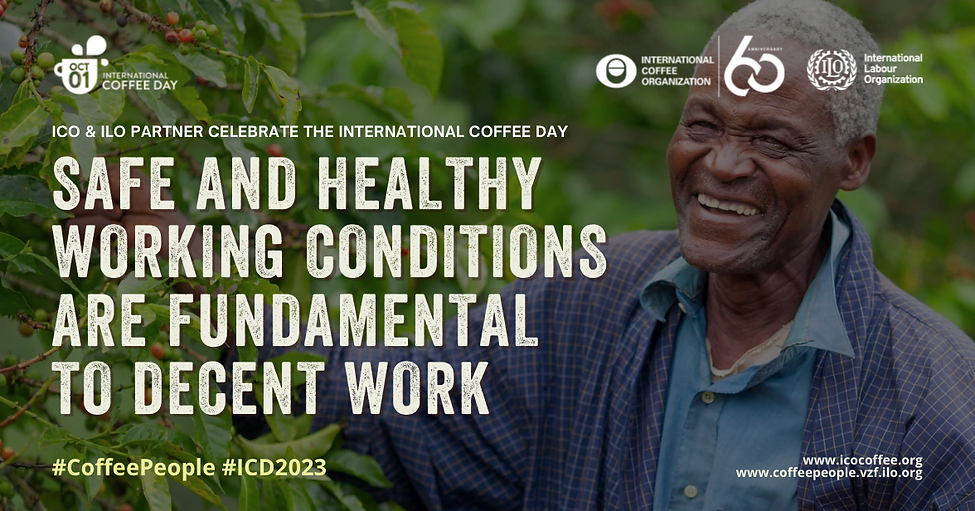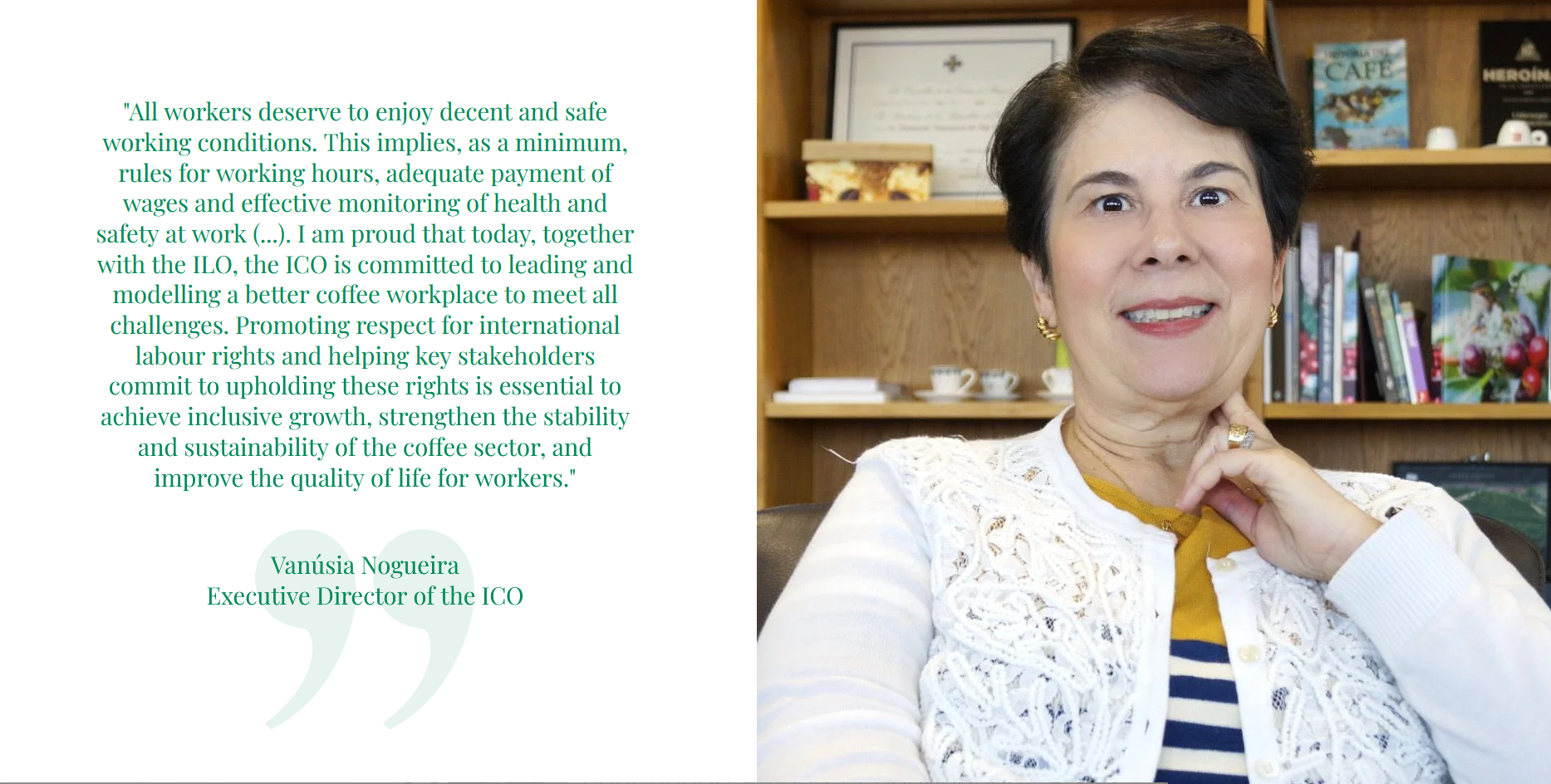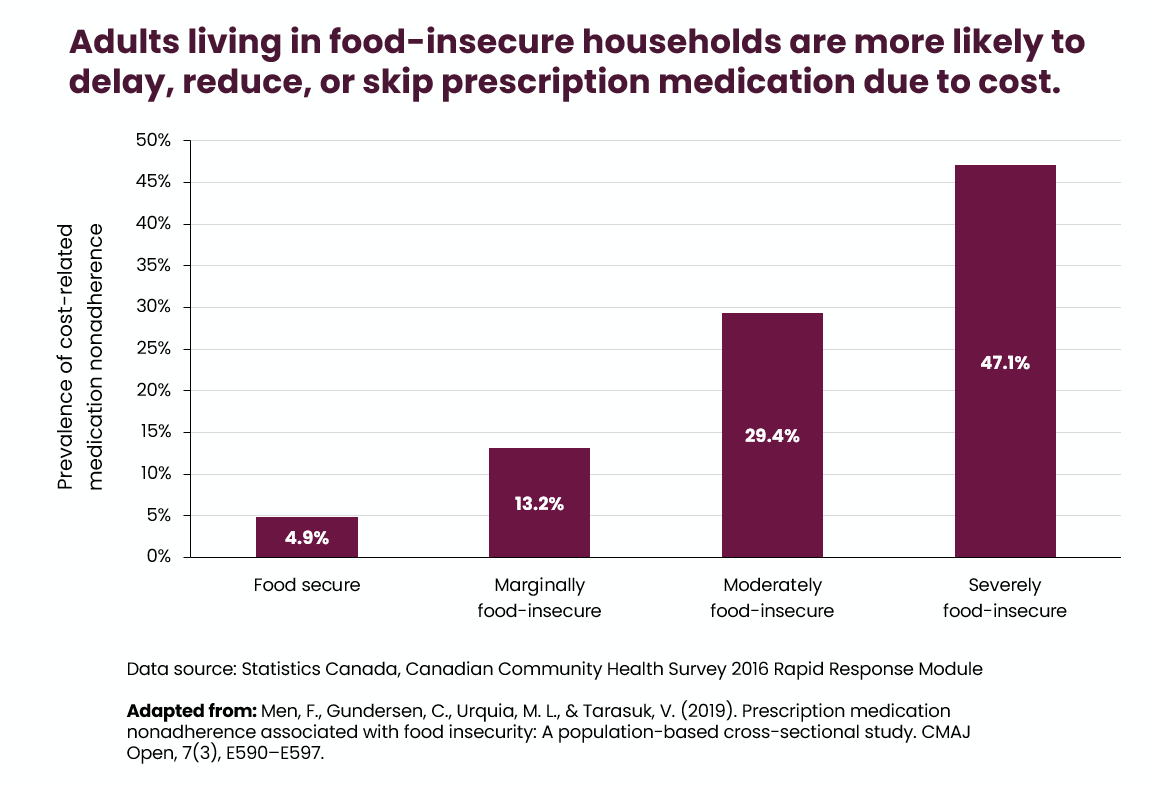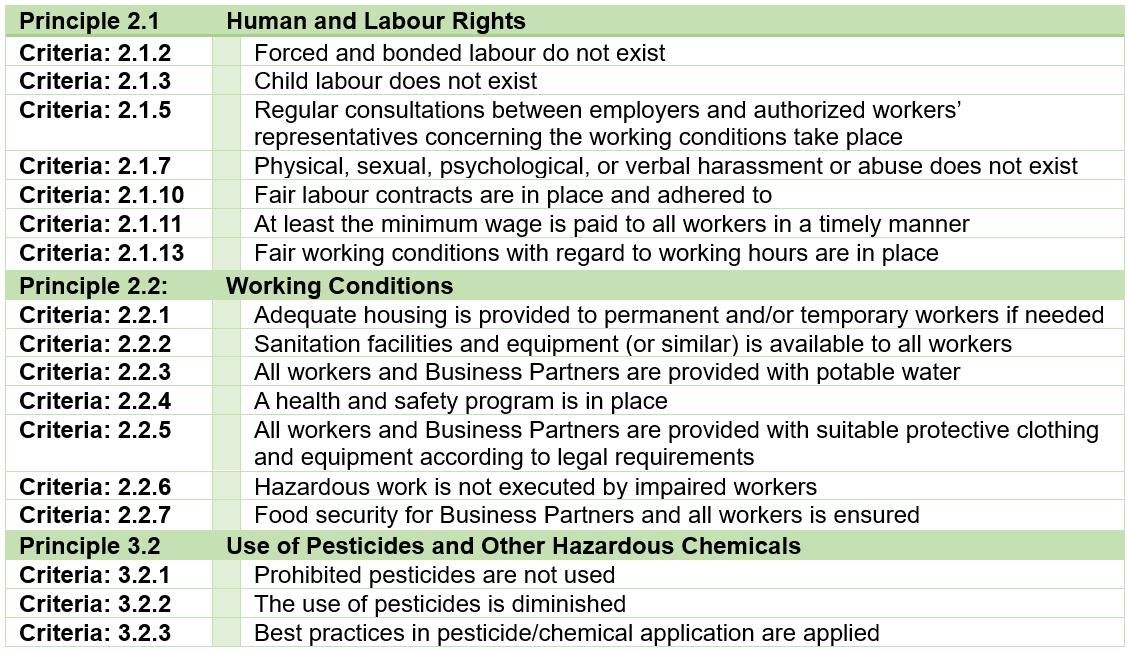Championing the Health and Safety of Workers in Coffee Production
International Coffee Day 2023 – #CoffeePeople Campaign

In commemoration of this year’s International Coffee Day on October 1st, 2023, the International Coffee Organization (ICO) and the International Labour Organization (ILO) have joined forces to spearhead an EU-funded campaign under the motto #CoffeePeople. International Coffee Day marks an annual tribute to the dedication of coffee farmers, and everyone involved in bringing coffee to our cups. This year’s campaign shines a light on the unsung heroes in the coffee industry – the workers driving the entire supply chain.
Under the overarching mission of “promoting the right to a safe and healthy working environment in the coffee supply chain”, this campaign seeks to unite stakeholders from across the coffee sector to advocate for workers’ rights. At the core of the initiative lies the ILO’s Vision Zero Fund, striving to eradicate work-related accidents, injuries, and illnesses within supply chains worldwide. It provides the framework for the campaign’s purpose and ambition.

Recognizing that actions speak louder than words, the #CoffeePeople Campaign encourages stakeholders to not merely express support but to commit to concrete pledges aligned with this year’s theme. Through these commitments, the campaign aims to kickstart real, meaningful improvements in the health and well-being of workers in coffee supply chains.
4C is happy to announce that we are responding to this call to action with our own pledge dedicated to promoting the right to a safe and healthy working environment for everyone in the coffee supply chain.

What makes coffee a dangerous industry for workers?
Every worker in the coffee supply chain deserves a safe and healthy working environment yet they regularly experience preventable work-related injuries and illnesses. According to the ICO, major safety and health hazards in coffee agriculture are:
- Injuries from cutting tools ranging from skin abrasions and minor cuts to severe wounds
- Injuries from contact with, or entanglement in, unguarded machinery or from being hit by motorized vehicles
- Hearing loss or impairment due to noisy machinery
- Musculoskeletal injuries from repetitive and forceful movements, and lifting and carrying heavy or awkward loads
- Poisoning and long-term health problems from pesticide use or exposure
- Respiratory problems due to exposure to coffee dust
- High levels of sun exposure which can result in skin cancer and heat exhaustion
- Snake and insect bites
- Long working hours
- Stress
The International Journal of Environmental Research and Public Health conducted a study on effects of pesticide use in coffee farms. The most frequently pesticides-related symptoms reported included strong tiredness, stomachache, irregular heartbeat, sleeplessness, difficulty breathing, dizziness, and visual problems. The high incidence of pesticide-related symptoms and diseases can be attributed to improper pesticide use, coupled with a deficient or largely absent legislative frameworks and a lack of oversight by authorities.
Food insecurity and hunger are further global issues that have a major effect in many coffee growing regions. Food insecurity leads to a wide range of serious health issues, and its effect on mental and physical wellbeing goes beyond poor nutrition and diet. For instance, according to a study, nearly 50% of adults residing in households with severe food insecurity reported having to delay, reduce, or forgo prescription medications due to financial constraints.

How the 4C System addresses workers’ health and safety
The 4C Code of Conduct comprises our principles across the economic, social, and environmental dimensions of sustainability. To become certified, 4C Units need to comply with the 4C Code of Conduct requirements, which is verified by independent third-party auditors who closely follow 4C’s guidance in ensuring compliance and making certification decisions.
The 4C Code of Conduct outlines comprehensive requirements to protect workers’ health and safety in 4C certified farms and processing facilities.

In addition to the core 4C certification, we offer solutions to system users who wish to commit deeper to Human Rights Due Diligence and proactively address identified threats in their supply chains. Together with the Food Security Standard, founded by Welthungerhilfe, WWF and the German Ministry for Food and Agriculture, we have created the Food Security Add-On which is adapted specifically for addressing hunger and food insecurity in coffee supply chains. The Food Security Add-On features an extended checklist ensuring the dedicated promotion of workers’ health and safety. Find out more about the Food Security Add-On and contact us if you are interested in applying this innovative additional 4C certification in your coffee production.
How 4C pledges to further strengthen the protection of workers’ health and safety
As outlined in our pledge, 4C is committed to enhancing workers’ health, safety, and well-being by refining our system and requirements on working condition in 2024. Our dedication to continuous improvement is central to the 4C system.
Currently, we are revising the 4C Audit Checklist in line with international standards, laws, and regulations, while also incorporating valuable feedback from system users. This document is pivotal in our system, guiding auditors in ensuring compliance with the 4C Code of Conduct, which sets the standard for certification decisions.
The revisions of the Audit Checklist include:
- A clearer guidance on warning signs on farms and facilities such as wet mills, dry mills, and warehouses. Communication plays a pivotal role in ensuring the safety and well-being of workers and warning signs are an effective and cost-efficient solution to mitigate health risks, prevent accidents and ensure safety.
- Information about available options for health checks and healthcare services must be provided to all permanent, temporary, and seasonal workers.
- A documented emergency plan must be in place and communicated effectively to all workers to ensure its seamless execution in the event of an emergency.
- More detailed instructions on inspecting equipment and machinery to ensure safe use by both farmers and their workers. This encompasses demonstrating that equipment and machinery are well-maintained and regularly serviced and manufacturers’ guidelines and relevant regulations for calibration and servicing of equipment, machinery, and pesticide and fertilizer application equipment must be followed diligently.
The revisions to the Audit Checklist benefit not only the workers themselves but also extend to the surrounding communities. Farmers, who are part of the 4C System, are required to assess the potential impact of their operations on neighboring communities. This practice indirectly safeguards the well-being of the workers not only at their workplace but also in their homes and among their families.
4C is fully committed to elevating workers’ health, safety, and well-being, fostering a safer and more responsible coffee industry for all. We would like to extend our genuine gratitude to the ICO and ILO for highlighting this crucial issue on International Coffee Day 2023.